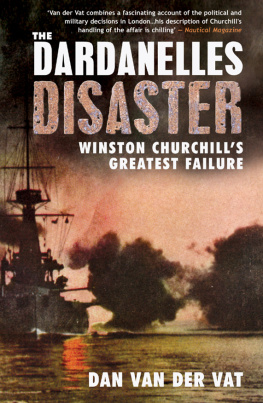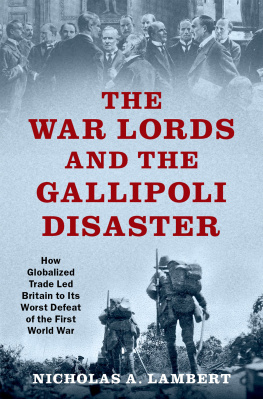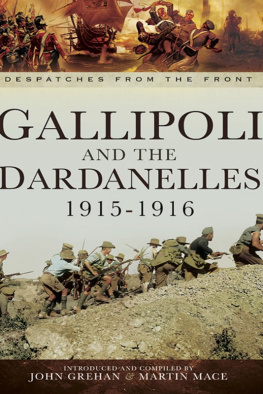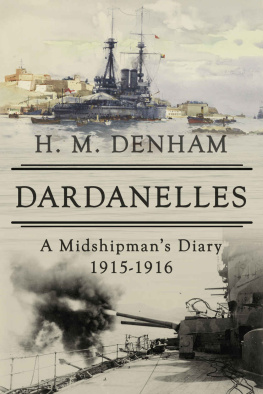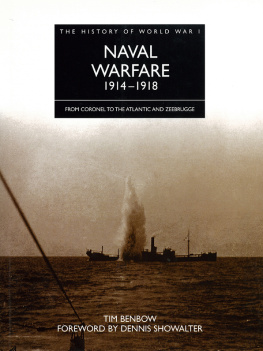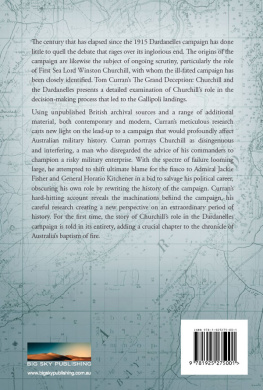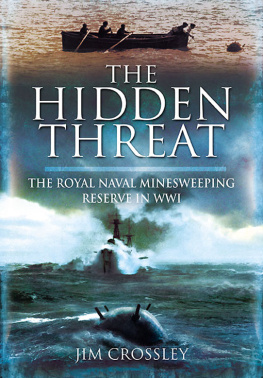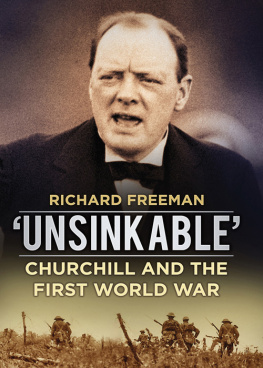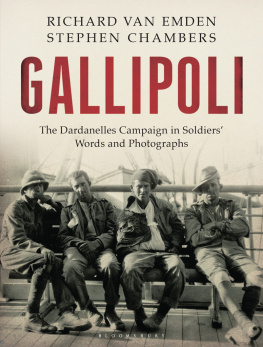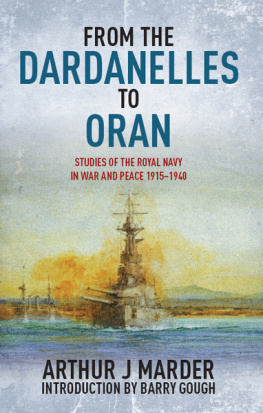THE DARDANELLES DISASTER
Also by Dan van der Vat
The Grand Scuttle: The Sinking of the German Fleet at
Scapa Flow in 1919
The Last Corsair: The Story of the Emden
The Ship That Changed the World: The Escape of the Goeben
to the Dardanelles in 1914
The Atlantic Campaign: The Great Struggle at Sea 19391945
The Pacific Campaign: The U.S. Japanese Naval War 19411945
Freedom Was Never Like This: A Winter in East Germany
Stealth at Sea: The History of the Submarine
The Riddle of the Titanic (with Robin Gardiner)
The Good Nazi: The Life and Lies of Albert Speer
Standard of Power: The Royal Navy in the 20th Century
Pearl Harbor: The Day of Infamy An Illustrated History
D-Day: The Greatest Invasion A Peoples History
THE DARDANELLES
DISASTER
Winston Churchills
Greatest Failure
DAN VAN DER VAT
Duckworth Overlook
First eBook edition 2011
This edition first published in 2010
First published in the UK and in the US in 2009 by
Duckworth Overlook
90-93 Cowcross Street
London EC1M 6BF
www.ducknet.co.uk
Copyright 2009 by Dan van der Vat
All rights reserved. No part of this publication
may be reproduced, stored in a retrieval system, or
transmitted, in any form or by any means, electronic,
mechanical, photocopying, recording or otherwise,
without the prior permission of the publisher.
The right of Dan van der Vat to be identified as the Author of
the Work has been asserted by him in accordance with
Sections 77 and 78 of the Copyright, Designs and
Patents Act 1988.
A catalogue record for this book is available
from the British Library
eISBNs
Mobipocket: 978-0-7156-3974-0
ePub: 978-0-7156-4058-6
PDF: 978-0-7156-4059-3
For James and Katie
from their grandfather
List of Illustrations
(Illustrations between pages 82 and 83)
Preface
Blunder upon Blunder
The official biographer of Winston Churchill, central figure in the Dardanelles disaster of 1915, writes that [Admiral of the Fleet Lord] Fishers return to the Admiralty coincided with Britains only serious naval defeat of the war. Fisher had been recalled from retirement to his old post as First Sea Lord on 30 October 1914: the reference is to the Battle of Coronel on 1 November, when Vice-Admiral Graf Spees German cruisers crushed a British squadron off Chile. Yet much of the same third volume of Sir Martin Gilberts biography is necessarily devoted to Churchills leading role, as First Lord of the Admiralty, in the Royal Navys abortive effort to reopen the Dardanelles after Turkey had closed them in August 1914.
As the political head of the navy Churchill personally presided over this unique fiasco, which led to his dismissal and almost destroyed his career. Since his style of administration could hardly have been more hands on, he did not merely preside over the disaster but intervened, if not interfered, in almost every operational and political aspect of it, large or small, often acting beyond his powers and presenting his Cabinet colleagues with faits accomplis. Yet his proposal to outflank the Central Powers Germany, Austria-Hungary and their allies, including Turkey by attacking the latter as the weakest link in a front deadlocked from Belgium to the Balkans is now widely accepted as the boldest strategic concept of the First World War. However, as with so many other failed British military enterprises, it was undermined by appalling incompetence in execution. Churchills great error was to go ahead with the navy alone after Kitchener, the Secretary of State for War, insisted that there were no troops available for the combined operation which contemporary informed opinion (including Churchill and Kitchener) had long since agreed was necessary to force the Dardanelles.
The Dardanelles disaster swelled the rising tide of complaints in Britain about bungling in high places. After the navys failure was bloodily redoubled by the armys at Gallipoli, heads eventually rolled, including Fishers and Churchills; and to survive as Prime Minister, Asquith was forced to replace his Liberal administration with a coalition Cabinet.
The Royal Navys abortive solo attempt to reopen the Dardanelles was prompted by another naval failure: the ineptly missed opportunity to deploy immensely superior forces to stop and destroy the Mediterranean Division of the German Imperial Navy in the first week of the First World War. Rear-Admiral Wilhelm Souchon was allowed to take his two ships, a battlecruiser and a light cruiser, over 1,000 miles from Sicily across the eastern basin of the Mediterranean to the Dardanelles. He eluded both the bulk of the French fleet and the British Mediterranean Fleet, which by itself was much his superior in firepower and numbers of ships, even though he could so easily have been trapped in the Strait of Messina between two groups of British ships each endowed with firepower superior to his. This incident was the subject of one of my earlier books, The Ship That Changed the World (1985), to which this volume forms a sequel.
The consequences of Souchons escape to Turkish waters, enabling the Germans to activate their secret alliance with Ottoman Turkey by provoking Tsarist Russia into a war against the Turks, were recognised by both British and German leaders as worth two extra years to the Germans and their allies in a war that lasted just over four. The Dardanelles strait was closed to the Entente powers Britain, France and Russia and the latter was effectively cut off, unable to export grain to the other two, who likewise were prevented from delivering much-needed munitions in return. The British were prompted to try to reverse this, not only to reopen the link but also to turn the eastern flank of the Central Powers by passing through the Dardanelles strait into the Sea of Marmara, knocking Turkey out of the war by threatening Constantinople, passing through the Bosporus into the Black Sea, joining hands with the Russians and going up the Danube to attack Austria-Hungary from the rear.
The failure of the great seaborne bombardment of the Dardanelles forts in March 1915, a leisurely seven months later, in a bid to reverse the Germans diplomatic and strategic coup, only served to compound its results exponentially. Compared with the consequences of the Royal Navys double failure Souchons escape and the rebuff at the Dardanelles the defeat at Coronel, handsomely avenged within weeks at the Battle of the Falkland Islands, where Spees squadron was all but wiped out, was a marginal skirmish of minor strategic significance. The abortive attempt to reopen the Dardanelles by naval gunpower alone, judged by its consequences, may therefore stand as the Royal Navys most significant failure, certainly in the First World War, probably in the twentieth century and possibly in all the 500 years of its existence. A victory for the Spanish Armada in 1588 or for Napoleons navy at Trafalgar in 1805 would have been rather worse, but neither came to pass, becoming instead the Royal Navys most important victories. A British failure to overcome the U-boat blockade imposed by the Germans in each world war would surely have surpassed the Dardanelles fiasco in gravity but was narrowly averted in each case.

